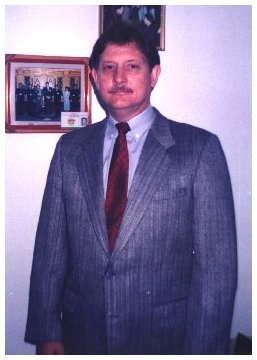
by

If anyone wonders why some American GIs flipped out while serving in the Vietnam War, John Muller has answers.

John Muller
Muller was nineteen when he was drafted into the US Army. He worked in Vietnam for the infamous Phoenix programme, teaching weapons tactics to mercenaries, Chinese Nung guards. Their job was to protect those who ran the counter-insurgency campaign.
Now at forty-eight, Muller is vice-president of the MPA security firm in Bangkok.
Looking back on Phoenix, Muller says: "Like any military operation, intelligence programs are required and are a natural part of any military machine. Phoenix was designed to speed up the settlement of the war by gathering intelligence and eliminating certain known high-ranking enemy.
"The aim was to systematically destroy the VCI (Vietcong Intelligence). Phoenix had its share of problems. These basically stemmed from the manner in which the program was organized. It was a covert operation - there wasn't a lot of visibility, so some officers went over the edge and created their own authority."
He says the frustration was unbelievable. "The soldiers didn't know who to trust. We didn't know who was the enemy and who wasn't. There were booby traps everywhere, sixty-five percent of our casualties were caused by booby traps. We never knew when a sniper was going to open fire on us.
"There was also a tremendous amount of racial tension between the troops themselves, which was accentuated by drug abuse. The war was enormously unpopular and the American troops were very confused because it was very confusing time," he says.
"We thought they were fighting for our country, but back home we were being called killers and baby-burners. Most soldiers were only nineteen. We didn't have much education. We hardly had any objectivity. We were taught to obey, not to think. There was a tremendous discrepancy between what we thought we were going to achieve and what we could actually achieve.
"We fought the war with our hands tied behind our backs. We were not allowed to go into the enemy's territory. How could we have won the war without going into North Vietnam?
"We were just like a UN police force, designed to train and beef up the government of (South) Vietnam and its army. In a crazy way it worked. We left in January 1973, and the South didn't fall until the end of April 1975. We helped drain the ultimate enemy, communism and we helped drain the USSR economically."
Explaining why some returning Vietnam veterans were able to cope with their war trauma better than others, Muller says: "Self-motivation. Those who coped were those who could put the experience behind them, get a good job and get on with their life. The war caused a depression in many guys which manifested itself in various forms, alcoholism, drug abuse, inwardness etc. You had to get tough and fight the depression and try to be a happy as possible."
After finishing his career in the army, Muller returned home to study political science at the University of Washington. He wanted to better understand what he had just been through, and he "wanted to save the world and correct the wrongs and make sure they didn't happen again". Muller was also determined to return to South-East Asia one day.
Recently he worked for Circle Freight International, which was contracted to perform land, sea and air logistics for UNTAC. His advice on security planning and equipment contributed greatly to the overall safety of the UNTAC mission. Now he is hoping that his security firm will be the first of its kind in Vietnam.
Muller left Vietnam physically in 1970 but not mentally. Now he wants to go back and do something he believed he set out to do twenty-five years ago, help the Vietnamese.
For further info contact John Muller c/o:
MPA
117/8 18-19 Soi 10 Moo 2
Chaeng Wattana Rd, Tungsonghong
Laksi, Bangkok
Thailand
10210
Tel: (662) 574-3805, direct line (662) 982-1645
Fax: (662) 573-9261, mobil (661) 831-4594
E-mail: muller@loxinfo.co.th